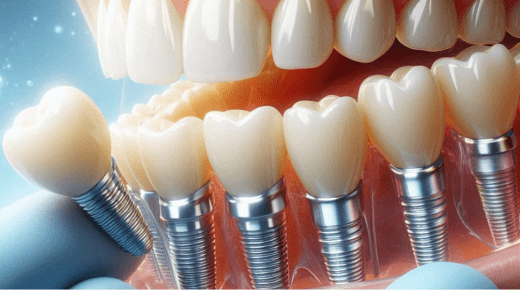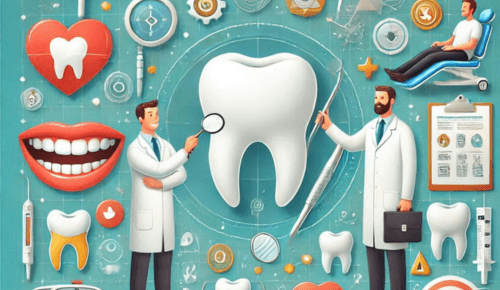Dentistry plays a crucial role in maintaining oral health. It is important to understand the difference between general and specialized dentistry. General dentistry covers routine procedures like teeth cleaning in Boston, exams, and fillings. These services help prevent decay and gum disease. Specialized dentistry focuses on more complex issues. Orthodontists, for example, straighten teeth and correct bites. Periodontists treat gum disease. Each type of dentist addresses specific needs. By knowing the distinctions, you can make informed decisions about your oral care. Regular visits to a general dentist ensure that any potential problems are caught early. If you need specialized treatment, your general dentist will guide you to the right specialist. Understanding this difference helps in choosing the right care and maintaining a healthy smile. Whether you need routine care or specialized treatment, knowing what each offers brings confidence and clarity to your dental choices.
What Is General Dentistry?
General dentistry is foundational for oral health. It encompasses preventive care, diagnostic assessments, and basic treatments. General dentists perform routine check-ups every six months. They carry out cleanings to remove plaque and tartar. This decreases the risk of cavities and gum disease. Fillings repair decayed or damaged teeth.
Diagnostic services, like X-rays, help detect issues that are not visible to the naked eye. This category also includes simple extractions and basic restorative work. General dentists provide education on proper brushing and flossing techniques. They emphasize the importance of maintaining a healthy diet for oral health.
What Is Specialized Dentistry?
Specialized dentistry focuses on specific areas of dental care. Specialists undergo additional training to address complex cases. Here are some common types of specialized dentistry:
- Orthodontics: This field deals with aligning teeth and jaws. Orthodontists use braces and other devices to correct misalignments.
- Periodontics: Periodontists treat and prevent gum disease. They manage conditions affecting the supporting structures of the teeth.
- Endodontics: Endodontists specialize in root canals and treatments involving the tooth pulp.
- Oral and Maxillofacial Surgery: These specialists perform surgeries on the mouth, jaw, and face. They handle complex extractions and reconstructive procedures.
- Pediatric Dentistry: Pediatric dentists focus on dental care for children. They manage developmental issues and early dental care.
Comparing General and Specialized Dentistry
To better understand the differences between general and specialized dentistry, consider the comparison below:
| Aspect | General Dentistry | Specialized Dentistry |
| Focus | Preventive and routine care | Advanced and specific treatments |
| Education | Basic dental degree | Additional specialized training |
| Common Procedures | Cleanings, fillings, basic extractions | Braces, root canals, surgeries |
| Patient Age Group | All ages | Varies by specialty |
Choosing the Right Dental Care
When deciding on your dental care, it’s crucial to identify your needs. Regular check-ups with a general dentist keep your oral health in check. If a specific issue arises, they will refer you to a specialist. Both general and specialized dentists play important roles in comprehensive dental care.
Understanding the differences aids in making informed decisions. When in doubt, consult with your general dentist. They will provide guidance on the appropriate treatment and refer you to a specialist if needed. This ensures that you receive the most suitable care for your individual needs.
Why Regular Dental Visits Matter
Routine visits to a dentist, whether general or specialized, prevent small problems from becoming big ones. According to the Centers for Disease Control and Prevention, regular dental check-ups can help detect cavities, gum disease, and other conditions early. Early detection leads to simpler, less invasive treatment.
Proper dental care also contributes to overall health. Oral health is linked to conditions such as heart disease and diabetes. By keeping up with dental visits, you support not just your teeth, but your whole body. For comprehensive care, make sure to see your dentist twice a year.
Conclusion
Understanding general and specialized dentistry is key to optimal oral health. General dentists manage your routine needs and refer you to specialists when necessary. Specialists handle more complex issues that require advanced care. Together, they ensure that you receive comprehensive treatment. Regular visits and informed choices lead to a healthy, confident smile.





